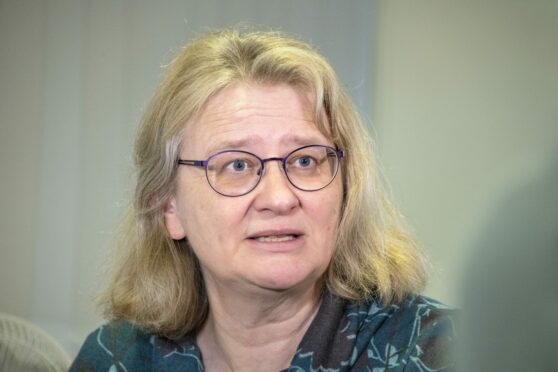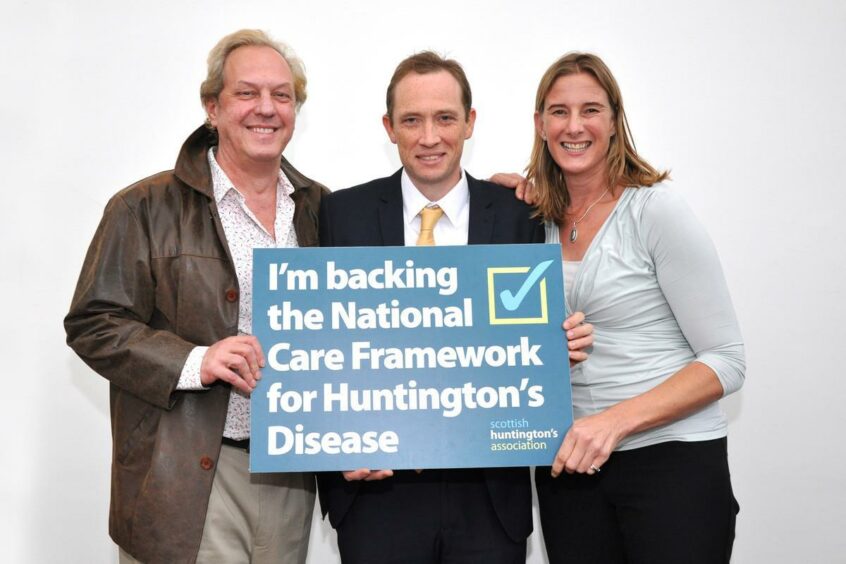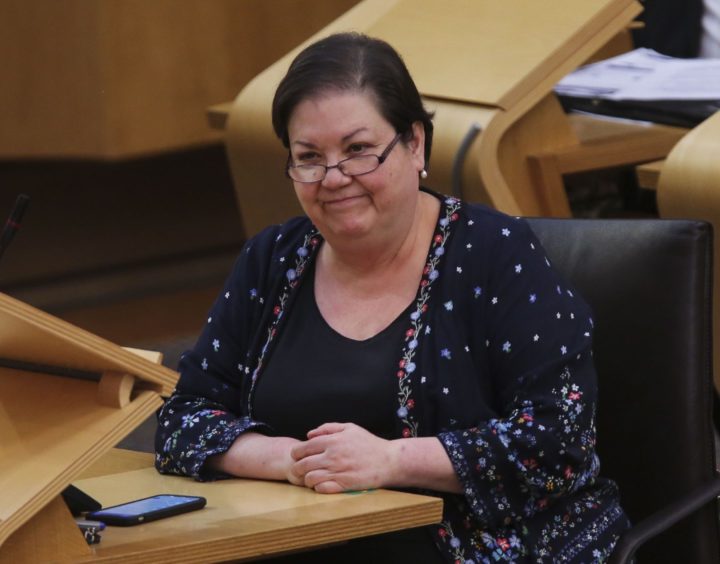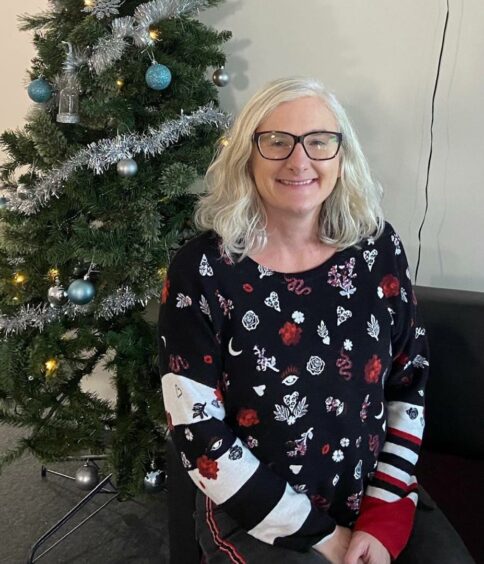A call to expand Huntington’s Disease specialists to Orkney, Shetland and the Western Isles has received historic levels of support amid a surge of cases in northern Scotland.
Diagnoses of the neurological condition, which has no cure, have increased by almost 50% over the last 30 years – making the north and north-east a global hotspot.
Research done by Aberdeen University has found the genetic disease is five times more common in the area than the worldwide average.
Now a motion tabled in the Scottish Parliament has received a historic level of support with 99 MSPs agreeing services need to be expanded to meet demand.
However, while there are specialists in NHS Grampian and NHS Highland areas – island communities remain without the support despite a Scottish Government commitment.
What is Huntington’s Disease?
Huntington’s Disease is incurable and gradually robs patients of their ability to walk, eat, talk and make decisions for themselves while developing involuntary movements.
The combined impact can lead to some being dismissed as being drunk, on drugs or as troublemakers due to their erratic behaviour.
As the condition progresses they become more reliant on care, eventually requiring 24/7 support.
Symptoms usually start between 30 and 50 years old but can be earlier or later – it is usually fatal 10 to 20 years after the first signs develop.
Parents have a 50% chance of passing the Huntington’s gene to their children.
‘The time has come to take heed, and act’
Charity Scottish Huntington’s Association has been campaigning for every area in the country to have a specialist dedicated to the condition.
Without specialist support, children become carers for their parents while knowing they have a chance of inheriting the disease.
A Scottish Government-backed framework in 2017 committed to ensuring every NHS board area had dedicated staff.
However, four years on, Shetland, Orkney, the Western Isles, Forth Valley and the Borders remain without a dedicated Huntington’s specialist.
Alistair Haw, chief executive of the Scottish Huntington’s Association, said: “Where services are in place the growing demand resulting from rising cases has not been matched by an increase in resources, leaving staff at breaking point and families abandoned to fend for themselves in a system that doesn’t understand their needs.
“Huntington’s disease is a hugely complex, widely misunderstood and extremely difficult to manage condition.
“Specialist services are not some nice to have optional extra but an absolute necessity. Given the rise in cases over recent years a commensurate rise in specialist services is now required.”
Historic backing for Huntington’s specialists
A motion lodged in the Scottish Parliament by Labour’s deputy leader Jackie Baillie has received the highest ever number of MSP signatures.
The call for NHS boards and health and social care partnerships to expand Huntington’s care has been signed by 99 MSPs – which is 98% of the eligible members due to government ministers and the presiding officer not backing them by convention.
About 1 in 5,000 people in Scotland have Huntington’s disease with 1,100 Scots already diagnosed and a further 4,000 to 6,000 at risk of inheriting it from a parent.
Professor Zosia Miedzybrodzka, from Aberdeen University who is Huntington’s Disease clinical lead for the north of Scotland, said: “Huntington’s disease is diagnosed much more than it was in the 1980s, but services have not increased in proportion.
“The condition is complex and need is high. It is good to see such parliamentary recognition of the need to invest in services for this devastating, chronic condition with life-long impact.”
Meet Zoë as she launches this year’s Cup O’ Kindness #appeal by sharing her story to help you understand the impact #Huntingtonsdisease has on families. You’ll also find out how you can help through the work of SHA. Visit hdscotland.ogr/cupokindness to hear Zoë’s story. pic.twitter.com/jcvKyUnIdx
— Scottish HD (@ScottishHD) November 29, 2021
Ms Baillie said: “The Scottish Government must listen to parliament and ensure that specialist services for families impacted by Huntington’s Disease are expanded without delay.
“Huntington’s disease is a rare and extremely difficult to manage condition. It has a huge impact on both the mental and physical health of those who have it, and the loved ones who care for them.”
A Scottish Government spokeswoman explained it understood Huntington’s was a “devastating condition” while stressing they wanted to ensure patients got the “best possible care”.
She said: “Since 2015 we have committed over £500,000 in funding to the Scottish Huntington’s Association towards the development of a national care framework for HD and in funding to support the organisation’s specialist support services and initiatives to raise awareness of the condition.
“The minister for public health recently met with the organisation to discuss the motion and issues regarding HD (Huntington’s Disease) care and services in Scotland.”
‘I don’t my husband to have to be my carer’
Mother-of-two Marie Short, who has been diagnosed with Huntington’s, wrote to NHS Forth Valley bosses about the lack of services when she moved to Falkirk 18 years ago.
The 50-year-old has already lost her father, a sister and a brother to the condition while another sister is looked after in a care home.
However, while her relatives in Fife have dedicated Huntington’s Disease specialists to advise carers and medics about the condition, she does not.
Mrs Short, who was made an MBE due to recognise her efforts raising awareness of the disease, said: “I don’t want my husband to have to become my carer, cutting short his teaching career because there are no community-based HD specialist services where we live.
“We also worry that our teenage children won’t have the support they need to cope with thinking about genetic testing and having such a complex and difficult disease in the family.
“I had to make some really tough decisions for my brother and sister who lived in Fife. My mum and I were my oldest sister’s welfare guardian for 15 years and I know how complicated and exhausting the HD journey is.
“They had an HD specialist fighting their corner- it’s unimaginable trying to see how to live through that without dedicated HD support.”



